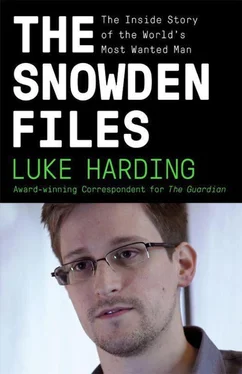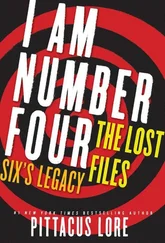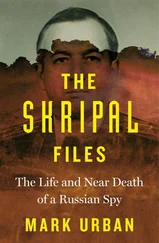The Guardian went ahead and told Sir Kim Darroch, the national security adviser, about TEMPORA. Two days later, the government came up with a formal response. Oliver said, apologetically: ‘Things move at a very slow pace.’ He said the prime minister had only recently been briefed on Snowden after Putin and the other guests had gone. And he was ‘concerned’. Oliver added: ‘We are working on the assumption you have got rather a lot of stuff.’
The upshot was a personal visit from Cameron’s most lofty emissary, the cabinet secretary Sir Jeremy Heywood. This top official had advised three prime ministers and three chancellors. Assured, urbane and intelligent, Oxford- and Harvard-educated Heywood was used to having his own way.
In a 2012 profile, the Mirror had dubbed Heywood ‘the most powerful unelected figure in Britain… and you will never have heard of him.’ Heywood lived in some style in Clapham, south London, it reported (he was building a wine cellar and a gym). Nick Pearce, the former head of Downing Street’s policy unit, told the Mirror jokingly: ‘If we had a written constitution in this country, it would have to say something like, “Not withstanding the fact that Jeremy Heywood will always be at the centre of power, we are free and equal citizens.”’
There was an unhappy precedent for using cabinet secretaries on these sorts of missions. In 1986, the then prime minister Margaret Thatcher dispatched Sir Robert Armstrong all the way to Australia, in a vain legal attempt to quell intelligence agency leaks. MI5 were seeking to halt the publication of Spycatcher , a memoir by disgruntled former MI5 officer Peter Wright. In it, Wright alleged that MI5’s former director general Sir Roger Hollis had been a Soviet spy, and that MI5 had ‘bugged and burgled’ its way across London, and eavesdropped on Commonwealth conferences. There were echoes here of GCHQ’s bugging of the G20.
Thatcher’s move was a debacle. Armstrong was ridiculed in the witness box, not least for his smug phrase that civil servants were sometimes ‘economical with the truth’. Wright’s memoir sold hundreds of thousands of copies worldwide on the back of the publicity.
At 8.30am on Friday 21 June, Heywood arrived at the Guardian ’s Kings Place office. ‘He was clearly quite irritated,’ Johnson says. The prime minister, the deputy PM Nick Clegg, the foreign secretary William Hague, the attorney general and ‘others in government’ were all ‘deeply concerned’, said Sir Jeremy. (The reference to attorney general Dominic Grieve was deliberate; it was he who would decide any Official Secrets Act prosecution.)
Heywood wanted reassurances that locations of troops in Afghanistan wouldn’t be revealed, or ‘our agents undercover’. ‘Absolutely,’ Rusbridger agreed. The government was ‘grateful’ to the Guardian for the reasonable way it had behaved so far, Heywood conceded. But further publication could help paedophiles and endanger MI5 agents.
The editor said the Guardian ’s surveillance revelations were dominating the news agenda in the US and had sparked a huge debate. Everyone was concerned, from Al Gore to Glenn Beck; from Mitt Romney to the American Civil Liberties Union. Tim Berners-Lee, the founder of the internet, and Jim Sensenbrenner, the congressman who drew up the Patriot Act, were also supportive. Even President Obama had said he welcomed the debate.
‘We are hoping you will take the same view as Obama. It’s a good debate,’ said Rusbridger.
Heywood responded: ‘You have had your debate. Debate is raging. You don’t need to publish any more articles. We can’t have a drip drip drip of this material into the public domain.’
He left the threat of legal action against the Guardian open. He said it was now up to the attorney general and the police to decide whether to take things ‘further’. ‘You are in possession of stolen property,’ he emphasised.
Rusbridger explained that British action would be futile. Snowden’s material now existed in several non-British jurisdictions. Had he heard of Glenn Greenwald? Greenwald lived in Brazil. If the Guardian were restrained, Greenwald would certainly resign and carry on publishing. Heywood: ‘The PM worries a lot more about the Guardian than an American blogger. You should be flattered the PM thinks you are important.’
The Guardian was now a target for foreign powers, he went on. It might be penetrated by Chinese agents. Or Russians. ‘Do you know how many Chinese agents are on your staff?’ He gestured at the modern flats visible from the window across muggy Regent’s Canal. The Guardian sits at a busy crossroads: in one direction King’s Cross and St Pancras stations, between them an old goods yard, soon to be Google’s new European HQ. On the canal are barges, coots and moorhens. Heywood pointed at the flats opposite and remarked, ‘I wonder where our guys are?’ It was impossible to tell if he was joking.
Behind the scenes, a lot of people were apparently furious with the Guardian . And willing to take extreme steps. ‘What do you know about Snowden anyway? A lot of people in government believe you should be closed down, and that the Chinese are behind this.’
Rusbridger responded that this top-secret GCHQ material was already shared with… well, thousands of Americans. It wasn’t, after all, the Guardian that had sprung a leak but GCHQ’s transatlantic partners. Heywood rolled his eyes, signalling ‘Tell me about it.’ But he insisted that the UK’s own vetting procedures were rigorous. ‘It isn’t in the public interest to be writing about this. All this stuff is scrutinised by parliament. We are asking you to curb your enthusiasms.’
Rusbridger reminded Sir Jeremy politely of the basic principles of press freedom. He pointed out that 40 years earlier similar arguments had raged over the New York Times and the Pentagon Papers. US officials asserted it was the job of Congress to debate the conduct of the Vietnam war, not the Fourth Estate. The Times had published anyway. ‘Do you think now it was wrong to publish?’ Rusbridger asked the mandarin.
The encounter was inconclusive. For the government, it proved that the Guardian was obdurate. For the Guardian , it showed that the government was willing to bully behind the scenes, to try and shut down debate. Heywood’s charges – you are helping paedophiles and so on – were by their nature unprovable. And as was later to become plain, the British government was not in fact at all keen to use its draconian legal powers. The reason, presumably, was simple: they feared Snowden and Greenwald had some kind of nuclear insurance policy. If HMG called in the police, maybe every single sensitive document would be spilled out online, WikiLeaks-style.
Oliver Robbins later hinted at the government’s thinking in a witness statement, saying ‘so long as the newspaper showed cooperation, engagement was the best strategy.’ In return for the Guardian having a dialogue about a forthcoming story, the two men offered a high-level briefing. After that briefing, the Guardian published the TEMPORA story with a few modifications.
It went live on the Guardian ’s website at 5.28pm. The reaction was instant. There was a rolling wave of public indignation. One comment read: ‘Who gave them [GCHQ] permission to spy on us and hand our private information to a foreign power without our consent?’
Nick Hopkins, the Guardian ’s investigations editor, had liaison with the intelligence agencies as one of his regular tasks. After the TEMPORA disclosures, Hopkins suggested a peace meeting with a GCHQ official to clear the air. He replied: ‘I would rather gouge my eyes out than be seen with you.’ Hopkins responded: ‘If you do that you won’t be able to read our next scoop.’ Another GCHQ staffer suggested – with tongue in cheek – that he should consider emigration to Australia.
Читать дальше












